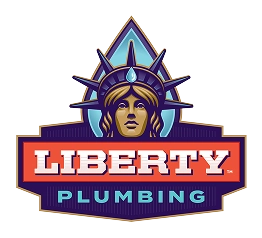What you must know about pipe corrosion
It is unfortunate, but like most things in our homes, pipes are not meant to last forever. Even pipes that are designed to last fifty years or more, under certain conditions, especially with heavy water, can wear out much sooner than intended. Every homeowner should be aware of this and understand what pipe corrosion can do to the plumbing in your home. Corrosion can impact pipes differently depending on their material and use, and some materials corrode faster than others.
Why do pipes corrode?
The process of corrosion occurs due to electron exchange in an electrochemical reaction. For those who struggled in chemistry class, this means that the metal material of which pipes are made begin to lose electrons as they are exposed to other substances, leading to rust, which eventually causes leaks and clogs. Below ae some of the most common reasons pipes corrode.
1. Electric currents
This is particularly problematic if your pipes run underground near electrical lines. Electrical current can travel down pipes, especially copper pipes, causing an electrochemical reaction.
2. High O2 Levels
Elevated levels of oxygen in the water can cause oxidation, which in turn causes rust buildup. Left unchecked, rust growth has been known to completely block pipes.
3. PH Balance
Substances that are neutral have a PH of around 7. Anything higher than that is alkaline, and anything lower than that is acidic. Alkaline water can cause deposit buildup inside pipes, while acidic water can cause corrosion, leaching and staining.
4. Properties of Water
Water that has a high mineral content can cause buildup in pipes due to calcification, while metals in pipes can cause galvanic corrosion. This is the transfer of electrons from metals with a high electron count to a metal with a low electron count.
5. Velocity and temperature
Water that rushes too fast through pipes can cause wear and tear. Likewise, water that is incredibly hot or cold can weaken the structure of the pipes themselves.
What corrosion does to your water
Pipes made of different materials will begin to corrode differently and for different reasons. However, one should always be on the lookout for water properties, especially if your water begins to change. If you start noticing a foul odor or bitter taste, cloudiness and discoloration, or, worse, you begin to have health problems, have your pipes checked immediately.
• Iron Pipes will be the most prone to rust, causing a red discoloration and eventual clogs. This usually does not pose a health risk, but will cause the water to taste terrible.
• Lead Pipes are unhealthy even at the best of conditions, but can be very dangerous when they begin to corrode. Lead has been linked to several severe health problems, and when it leaches into your water, can trigger health complications, even death. Any lead pipes in a building should be replaced immediately.
• Copper Pipes tend to turn green or blue when they begin to corrode and can cause the water to turn these colors. Minor amounts of copper are not immediately toxic, but too much can lead to liver and kidney damage.
• PVC Pipes are the most resistant to corrosion, but not immune to it. The main problem with plastic pipes are at the connections, when metal joints or sealant is used improperly and leaches into the water, causing exposure to potentially toxic substances.
What corrosion will do to your plumbing
When your pipes have been compromised, you might notice several issues: leaks, line breaks, low water pressure, rust stains and damaged appliances. When pipes begin to corrode, they develop weak spots where holes and cracks form, leading to small leaks that eventually become big leaks. Inside the building, you might notice faucets clogging, low water pressure or clogs in the water heater, as well as rust stains in the sink. Problems will also surface in your pocketbook, as unknown leaks will drive up your water bill.
What to do about it
To begin with, you should always employ a plumber to check your pipes and lines for problems, especially before you move in to a new house. You can purchase a Langelier Saturation Index test at the hardware store to test your water’s PH, hardness, hardness and conductivity, all of which can be hurting your pipes. Some copper pipes can be repaired with commercial cleaners meant for copper pipes, but most pipes will need to be replaced if they show signs of corrosion. It is best not to put off the job as well, for the bigger the problem, the bigger the repair will be.

